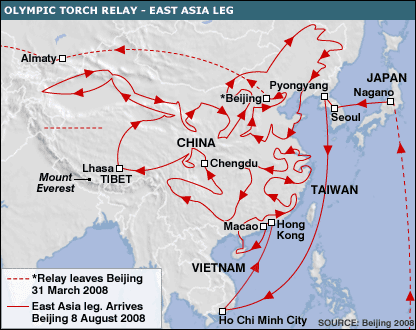Yonhap
Byun Duk-kun
12/19/2007
Lee Myung-bak, almost certain to be South Korea’s next president, will likely continue engaging North Korea through economic cooperation, but the extent should rely deeply on Pyongyang’s commitment to full denuclearization, unlike his predecessor who has often been under fire for granting unconditional aid to the North, analysts said Wednesday.
Closer ties with Washington will also be prioritized by the incoming administration of conservative Lee, who has criticized President Roh Moo-hyun for alienating the U.S. in dealing with the nuclear-armed communist North.
The entrepreneur-turned-politician says he can and will increase the communist nation’s per capita income to US$3,000 in 10 years, if Pyongyang completely abandons its nuclear ambitions.
“There will be no immediate changes to the country’s North Korea policy if the North continues to move down the path of denuclearization,” Kim Woo-sang, a political science professor at Seoul’s Yonsei University and a key advisor to the president-elect for security and foreign policy, said in an earlier interview with Yonhap News Agency.
Under a six-nation deal, North Korea has to disable its key nuclear facilities and disclose all its nuclear programs by the end of the year in return for economic and energy assistance and political benefits.
North Korea began disabling the Yongbyon complex early last month, but has yet to make a full declaration of its nuclear programs amid a five-year dispute between Pyongyang and Washington over the existence of a secret nuclear weapons program in the North.
The nuclear crisis erupted in late 2002 when the U.S. accused the North of running a uranium enrichment program. North Korea denies having any uranium program.
Seoul has regularly provided hundreds of thousands of tons of food and other humanitarian aid to the North since the historic inter-Korean summit between then President Kim Dae-jung and North Korean leader Kim Jong-il in 2000.
The Lee administration will continue to provide such assistance strictly based on humanitarian views, but economic cooperation between the divided Koreas will suffer significant reduction should the communist nation choose not to give up its nuclear weapons, Kim noted.
Further development or continuation of “ongoing economic cooperation projects, such as the Kaesong industrial complex, will be left to the market,” Kim said.
“The government will no longer try to encourage South Korean businesses to move into the industrial complex by providing subsidies and other benefits as it currently does, but will try to foster a better environment so the businesses and foreign investors will invest voluntarily,” he added.
At an October summit in Pyongyang, President Roh Moo-hyun and the North Korean leader agreed to launch various other reconciliatory projects, but Lee has said some of those projects will be subject to reconsideration.
Another visible change in policy towards North Korea will come in the way Seoul deals with the nuclear issue, the Yonsei professor said.
“Mr. Lee puts more weight on the six-nation denuclearization process than anything else, so the new administration will never try to take its own initiative or try to pressure China to convince North Korea to denuclearize,” he said.
While seeking more international cooperation in denuclearizing the North, Lee is expected to move closer to the United States, an ally Lee says has served as a capstone for Seoul’s security and economic development since the end of 1950-53 Korean War.
“The governments of Kim Dae-jung and Roh Moo-hyun neglected Korea’s relationship with the United States. China and Japan are important partners, but the next government will be moving in a different direction, focusing on Korea’s traditional relationship with Washington,” Lee had said in September.
The 65-year-old Lee has also noted his administration may try to push back the timing of taking back the wartime operational control of South Korean troops from the United States, which is currently scheduled to occur in 2012.
“As Mr. Lee has repeatedly said, there will be no renegotiation of the transfer of wartime operational control, but the scheduled timing of the transfer could become very sensitive depending on security conditions surrounding the Korean Peninsula in 2012,” said Kim.

